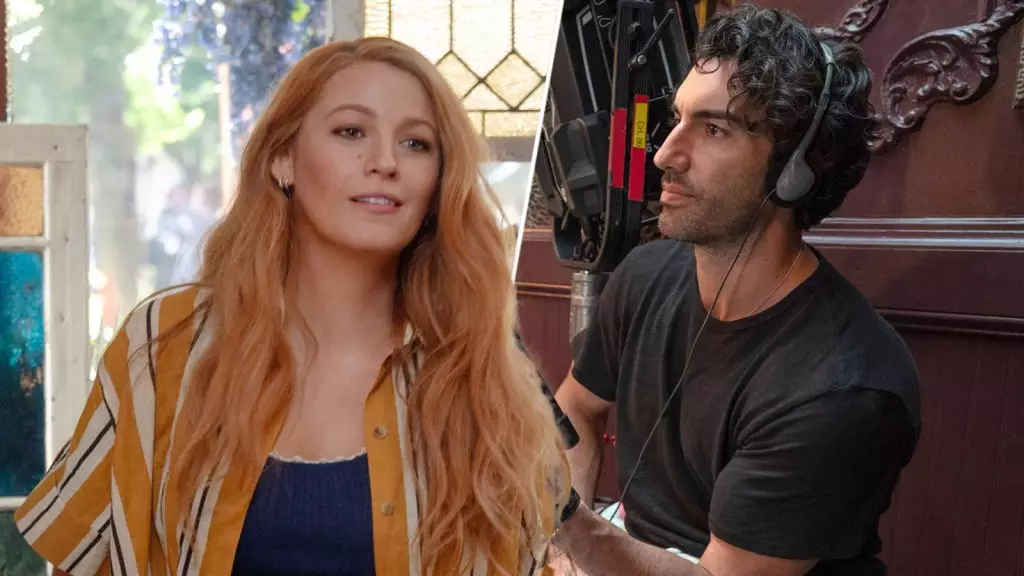The film industry has often been riddled with scandal, particularly in light of the #MeToo movement which brought to light the pervasive nature of sexual harassment. In a striking example of this ongoing battle, Blake Lively recently filed a comprehensive lawsuit against Justin Baldoni, her co-star and the director of “It Ends With Us.” The claims speak to a broader narrative—one of retaliation, workplace hostility, and challenges faced by women in an industry notorious for its power imbalances. Lively’s allegations involve not only the misconduct of Baldoni but also suggest a sophisticated campaign meant to undermine her reputation following her complaints about his behavior.
Among the serious repercussions of her allegations, Lively noted that her professional life suffered immediate and significant consequences. The lawsuit outlines a series of canceled engagements, including her withdrawal from hosting the Season 50 premiere of “Saturday Night Live,” a position that ultimately went to Jean Smart. This cancellation highlights the pervasive impact of workplace harassment—not just a personal affront, but a debilitating factor in a public persona’s career. As the indicators in the lawsuit show, Lively felt that attending public events would require her to confront the negative buzz surrounding the questionable environment on set, a significant deterrent for any professional working in the public eye.
The suit, filed with the California Civil Rights Department, doesn’t just accuse Baldoni of harassment; it paints a picture of a well-orchestrated retaliatory campaign executed by Baldoni and his production company, Wayfarer Studios. Lively’s detailed narrative reveals the extent to which the alleged misconduct influenced the production dynamics of the film adaptation of Colleen Hoover’s acclaimed novel, which explores themes of domestic violence. What is particularly alarming about this case is the revelation of an all-hands meeting that took place, ostensibly to address Baldoni’s “disturbing behavior.” This meeting did not take place in a vacuum; rather, it reflects a troubling climate where victims feel compelled to speak but face serious repercussions for doing so.
Central to the allegations is the claim that Baldoni engaged in discussions that made Lively uncomfortable. This includes suggestive improvisation and inappropriate personal comments—actions that, if verified, showcase a profound disregard for professional boundaries. The lawsuit also quotes communication involving Baldoni and a crisis public relations veteran, Melissa Nathan, suggesting an intent to control the narrative and mitigate the fallout from the accusations. Such strategic communications underscore how powerful figures within the industry can leverage their resources to counteract claims and manipulate public perception.
In response to the lawsuit, Baldoni’s legal representative claimed that Lively’s accusations were not only false but a desperate attempt to repair her own public image. This reaction illuminates a common defensive strategy where the accused may deflect accountability while vilifying the accuser. It raises essential questions about the treatment of victims in the entertainment industry and the reliability of voices that emerge amid scandal. The subsequent action taken by Baldoni’s agency, dropping him as a client following the allegations, suggests that even within the complex machinations of Hollywood, there is a limit to tolerance when reputational damage becomes too great.
Despite the turbulence surrounding her allegations, it is heartening to see support from fellow artists, including Hoover, who publicly commended Lively for her integrity and strength of character. Such backing is vital, as it reinforces the courage needed to confront systemic issues in an environment that often prioritizes silence over accountability. The solidarity displayed by Lively’s peers may serve as a catalyst for others who face similar predicaments in a demanding and often scrutinizing industry.
The lawsuit filed by Blake Lively against Justin Baldoni is not merely a legal document but a clarion call for reform within Hollywood and other sectors plagued by harassment. As discussions around workplace dynamics evolve, it is critical for industry leaders to foster environments where voice, responsibility, and respect are held in high regard. This case serves as a stark reminder of the battles many face and the systemic changes required to create truly safe and equitable workplaces for everyone in the creative sector.
